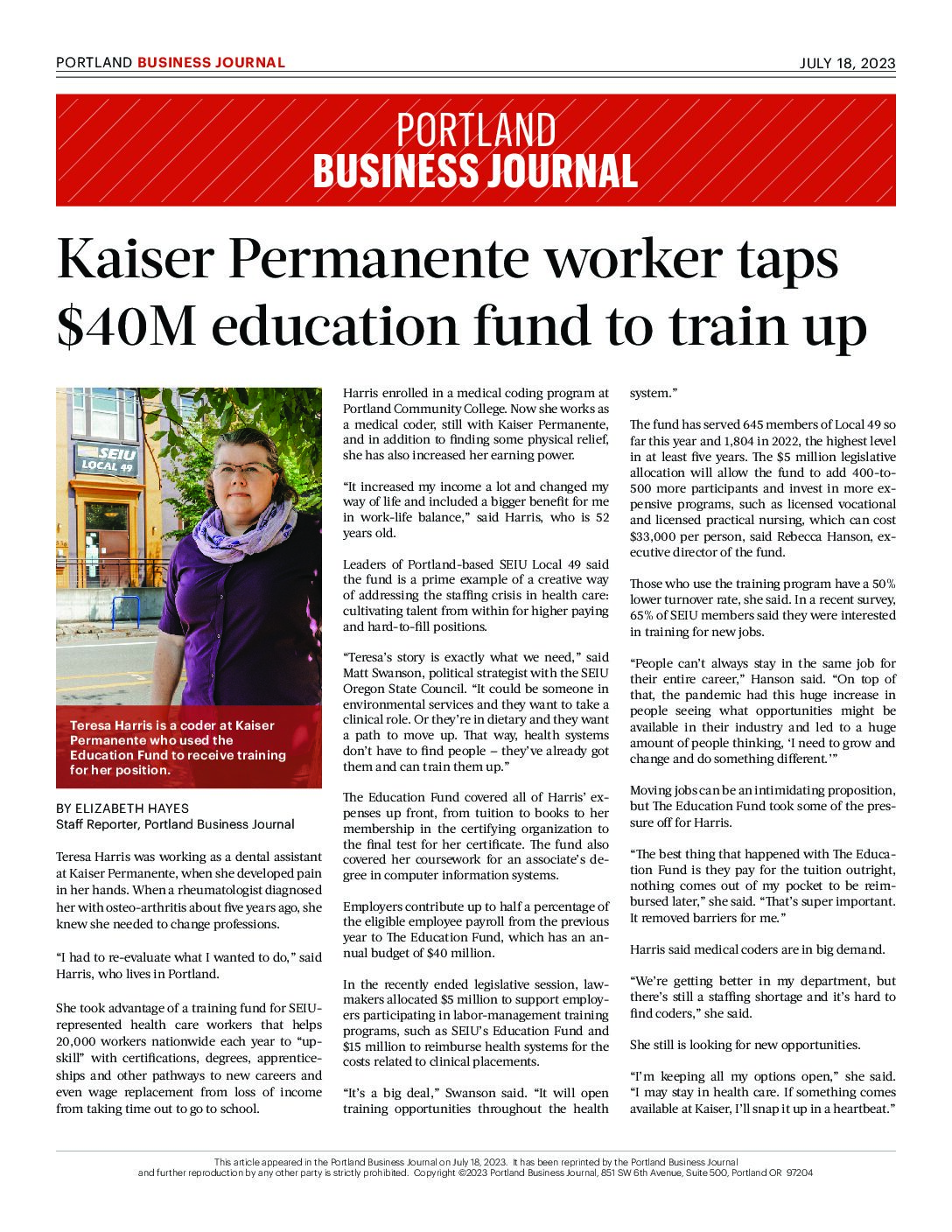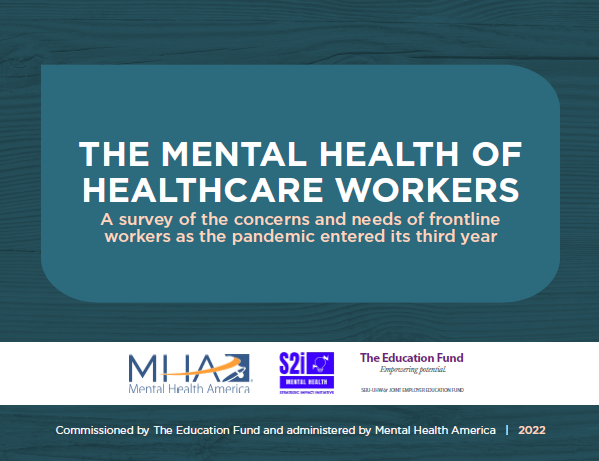“Sadly, less than 20% of the healthcare workers who participated in this survey felt they had adequate emotional support,” said Schroeder Stribling, President and CEO of MHA, “These findings underscore the urgent need to invest in accessible, culturally responsive supports and services for those on the frontlines of the COVID-19 pandemic, particularly as workers continue to face challenges associated with new subvariants.”
Other findings in the survey include:
- Workers in this survey reported that their most significant work-related stressors were heavy/increased workloads, uncertainty about when things will settle down, and, particularly for Asian, Black, and Latino workers, concern about getting sick themselves.
- Despite these stresses, workers across all job types report they do not have time or space to process the impact while at work (45%) and are unable to take time off when needed to attend to their own physical or emotional health (55%).
- More than half of all workers, regardless of job duties, regularly felt sadness. Almost one-third of all workers regularly felt grief, with administrative support staff reporting feelings of grief at higher levels than those who provide direct patient care.
- While workers reported experiencing negative feelings at very high rates, few workers experienced positive feelings, such as pride (only 8% overall), or hope (less than 18% overall).
- Despite early applause and shows of appreciation from the public for healthcare workers as heroes, by the end of the second year of the pandemic, 70% of front-line workers felt unappreciated regardless of racial group, job type, or tenure in healthcare.
- More than half of all workers (52%) questioned their career path in the previous three months, while up to 60% of workers of color have considered leaving healthcare as their profession.
“In addition to concern for workers and their families, this survey clearly tells us that unless we invest in support for all workers involved in delivering healthcare, we will exacerbate the challenges of retaining a qualified and diverse workforce in a field that has long faced a shortage of healthcare workers,” said Rebecca Hanson, Executive Director of The Education Fund.
The full report can be found here: https://mhanational.org/research-reports/healthcare-workers
With generous support from the James Irvine Foundation, the survey was commissioned by The Education Fund and administered by Mental Health America (MHA), in partnership with the Mental Health Strategic Impact Initiative (S2i). It augments findings of previous surveys by MHA and others in which most respondents were predominantly degreed medical professionals, such as physicians and nurses.
*********
About Mental Health America: MHA is the nation’s leading community-based nonprofit dedicated to addressing the needs of those living with mental illness and to promoting the overall mental health of all.
About The Education Fund: The SEIU-UHW & Joint Employer Education Fund is a multi-employer labor-management partnership serving 105,000 SEIU healthcare workers across 20 employers and six states to advance their careers through innovative education and training solutions.
About The Mental Health Strategic Impact Initiative: S2i is a national organization catalyzing change to ensure that all people with mental health conditions can live the fullest possible lives, and that public and private resources are equitably devoted to that end. It centers its work on the authentic leadership of people with lived experience and racial equity.
For more info, contact: Keith Mitchell at the Education Fund at kmitchell@theedfund.org or 510.250.6853
###


